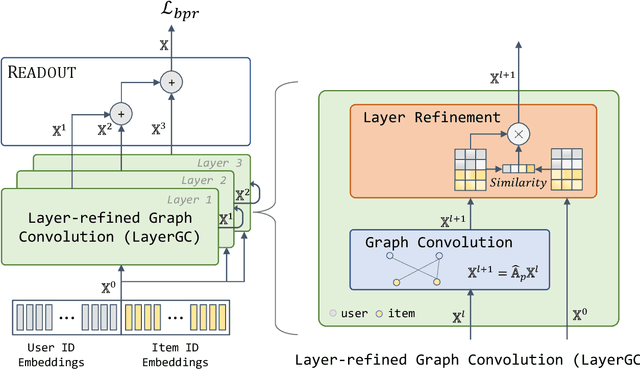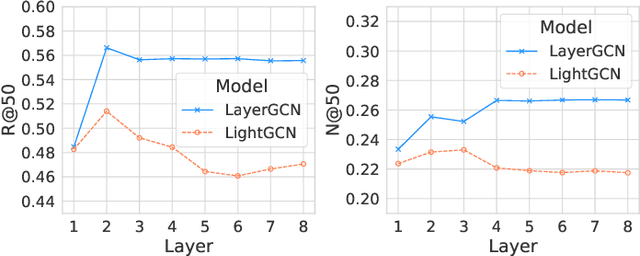Layer-refined Graph Convolutional Networks for Recommendation
Paper and Code
Jul 22, 2022



Recommendation models utilizing Graph Convolutional Networks (GCNs) have achieved state-of-the-art performance, as they can integrate both the node information and the topological structure of the user-item interaction graph. However, these GCN-based recommendation models not only suffer from over-smoothing when stacking too many layers but also bear performance degeneration resulting from the existence of noise in user-item interactions. In this paper, we first identify a recommendation dilemma of over-smoothing and solution collapsing in current GCN-based models. Specifically, these models usually aggregate all layer embeddings for node updating and achieve their best recommendation performance within a few layers because of over-smoothing. Conversely, if we place learnable weights on layer embeddings for node updating, the weight space will always collapse to a fixed point, at which the weighting of the ego layer almost holds all. We propose a layer-refined GCN model, dubbed LayerGCN, that refines layer representations during information propagation and node updating of GCN. Moreover, previous GCN-based recommendation models aggregate all incoming information from neighbors without distinguishing the noise nodes, which deteriorates the recommendation performance. Our model further prunes the edges of the user-item interaction graph following a degree-sensitive probability instead of the uniform distribution. Experimental results show that the proposed model outperforms the state-of-the-art models significantly on four public datasets with fast training convergence. The implementation code of the proposed method is available at https://github.com/enoche/ImRec.
 Add to Chrome
Add to Chrome Add to Firefox
Add to Firefox Add to Edge
Add to Edge